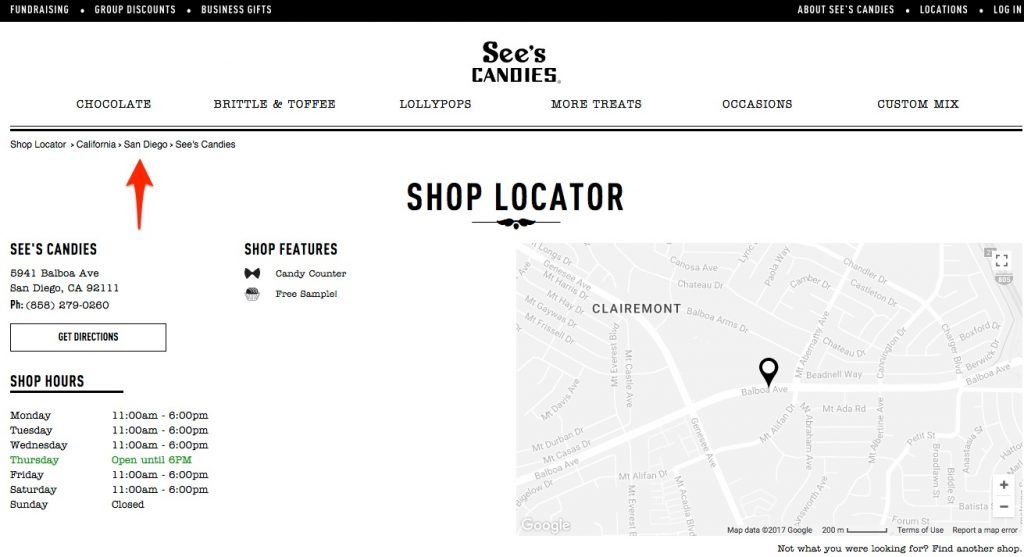Brands with many distributor locations across the country use dealer locator tools to provide consumers information on how to find their products at local stores.
But more often than not, these dealer locator mappers are missing the necessary local SEO optimizations that make their distributor locations appear prominently on search results pages. These brands are missing out on a huge opportunity to drive more visitors to their website, generate more retail traffic at these physical locations, and capture additional revenue as a result.
Here are a few simple ways to optimize your dealer locator for local search, to capitalize on this opportunity and quit leaving local money on the table.
Create dealer pages with search-friendly navigation
Why do you need to worry about targeting individual dealer location when you’re a big brand?
- Local branding – Consumers prefer to patronize brands the old-fashioned way: by choosing local locations and stores they know and trust.
- Effective, geo-targeted content – In order for Google to index and deliver your content to your intended audience, you need to make it locally relevant.
- No penalties involved – If executed correctly, local SEO for companies with multiple store locations will help you avoid link networking penalties.
Create location landing pages for each of your dealer locations with an organized linking hierarchy based on city, region, or state. It’s best practice to have less than 100 links on a single page, but you’ll probably want to reduce the internal linking structure even more to improve your user experience on these location pages.
If you have more than 100 distributor locations, start out at the state level. The state will link to participating cities, which then provide links to each individual location within that city. Make sure that the links in your navigation structure are search engine crawler-friendly; the shorter, the better.
Example of See’s Candies Locator Breadcrumb Structure:
Give consumers meaty local info: NAP & map
For each of these location pages, provide relevant information about the dealer’s store or service location, including address, phone number and hours of operation. Make sure you include a map!
Make each store’s profile page as unique as possible. For example, you can mention nearby landmarks, which helps the search engines understand your relevance to the local area. Include photos of each location, if possible.
Optimize your dealer location page titles for people & crawlers
Draw from your search query data within Search Console to better understand how users search for your business, and use that insight to craft your dealer location page titles. Use your brand name, the city, and business type within the title. For instance, “Dad’s Tools Hardware Store in San Diego, CA.”
Help Google associate your dealer locations in maps to your landing pages
Finally, using Google’s Business Location Bulk Upload tool, you can deliver your dealer locator information directly to Google Maps. This allows Google Maps to directly associate each of your locations to a unique landing page.
Use speciality pages for visibility across more relevant queries
How do you reach people who don’t already know your brand? Good local SEO takes advantage of unbranded keywords and demonstrates your relevance for queries related to certain products and services at the local level.
For example, imagine you’re a pet retailer trying to reach pet owners actively seeking out services and items tailored to their pet’s needs, but not specifically for your store. These people might be searching for “dog grooming,” or “pet vaccinations near me.”
Creating and optimizing speciality pages for services within each of your brand’s locations allows you to reach those potential customers while they’re actively looking for local services.
Just how important are speciality pages? A national pet retailer and service provider used hyperlocal speciality pages to promote their dog training, grooming, vaccinations and aquatics services. These pages drove an additional 1.4 million site visits and helped the retailer achieve a 42% lift in search volume year-over-year.
Optimizing all of your store locations can be time consuming, but has major benefits. Using a store location tool automates the process of creating these local listings to save you time, reduce errors, and help each location rank prominently when searchers are looking for businesses like yours.
source https://searchenginewatch.com/2017/09/06/how-to-make-sure-your-dealer-locator-tools-are-optimized-for-local-seo/


No comments:
Post a Comment